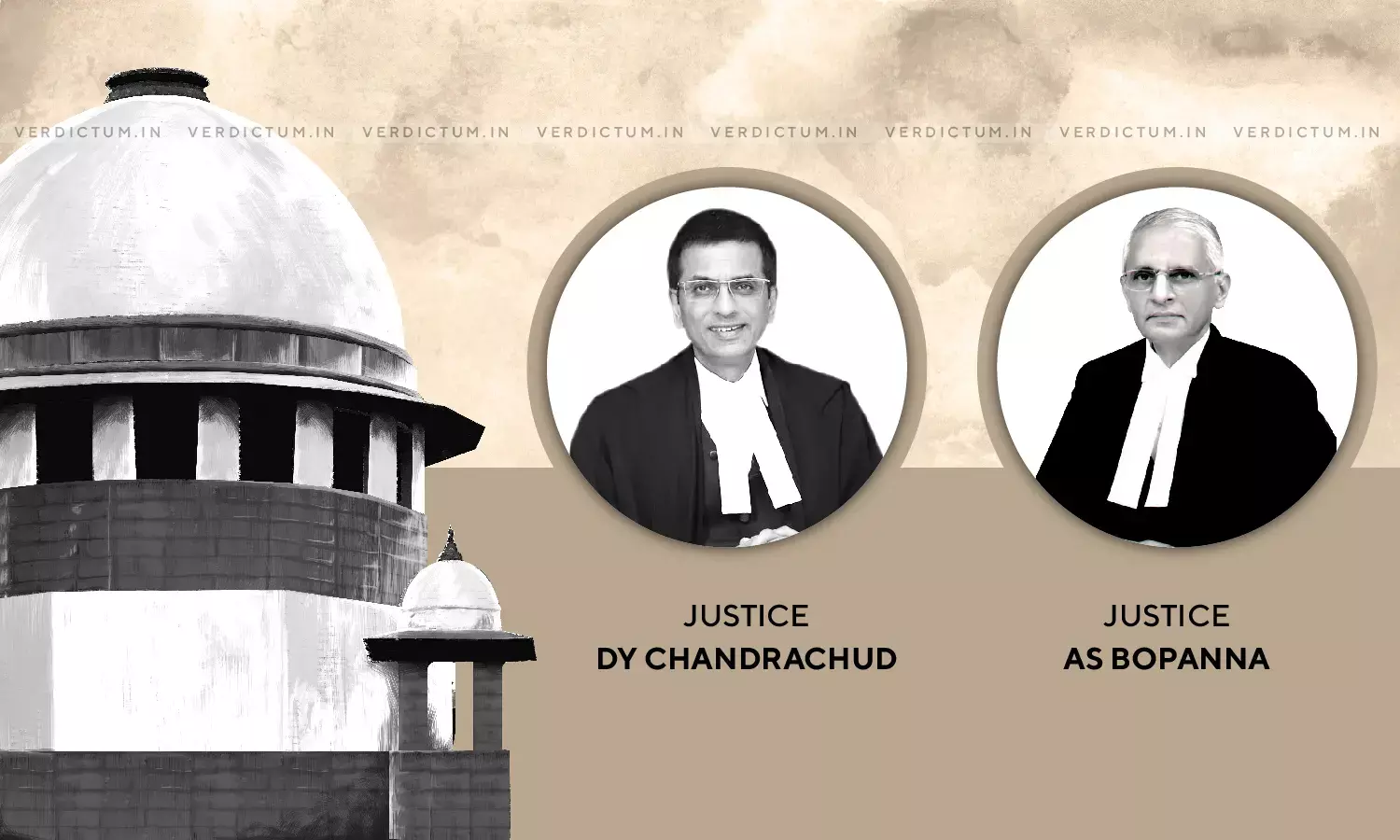Supreme Court Allows Commencement of Counselling For NEET In Post Graduate Medical And Dental Courses For 2021-22
The Supreme Court today allowed the commencement of counselling for NEET in post-graduate medical and dental courses for the year 2021-2022.

The Supreme Court Bench of Justice D. Y. Chandrachud and Justice A.S. Bopanna today passed an interim order allowing the NEET medical counselling process to be initiated for the academic session of 2021-22 with the quota of 27% for Other Backward Classes and 10% for the Economically Weaker Section. The Apex Court also assured that the criteria for the EWS reservation would be taken up by the Court later and would be subject to the outcome of the Petitions.
The Bench passed the below directions -
"1. We accept the recommendations of the Pandey committee that the criteria which has been stipulated in OM 2019 be used for 2021–20 22 in order to ensure that the admission process is not dislocated
2. Counselling on the basis of NEET PG and NEET UG shall be conducted by giving effect to the resolution as provided by the notice dated 29th July including the 27% reservation for OBC category and 10% reservation for the EWS category in the All India Quota
3. The criteria for determination of the EWS notified by OM 2019 shall be used for identifying the EWS category who appeared for NEET UG and PG 2021 examinations.
4. The validity of the criteria determined by the Pandey committee for identifying the EWS prospectively for the future be subject to the final results of the petitions.
5. The petition shall be listed for final hearing on the validity of the EWS criteria as recommended by the Pandey committee in the third week of March 2022."
Background
The matter that had been presented before the bench was challenging the validity of the Central Government's decision to introduce the Other Backward Classes and Economically Weaker Section reservation in the All India Quota for NEET admissions. This dispute began with the 29th July notification which was issued by the Central Government and introduced 27% reservations of the OBCs and 10% reservation for the EWS in the admission for the academic year 2021-22 to the undergraduate and postgraduate medical and dental courses. This decision of the Government was met with backlash.
In October the Central Government had informed the Apex Court that the counselling for the NEET examination would not begin until the issue of OBC and EWS reservation is not adjudicated upon. One issue that was pointed out by the Court was the 8 lakh annual income which was adopted by the Centre to figure out the EWS cut off and the Centre had agreed to form a committee to revisit the issue.
On 6th January, the committee had filed an affidavit saying that the committee has recommended no change for the admissions under the EWS criteria saying that changing the current system which has been going on since 2019 would create more complications and thus new criteria should be introduced from the next academic session and this was accepted by the Central Government.
The Bench heard the matter for two days where the Senior Advocate Shyam Divan appearing for the petitioners argued that the changes were introduced midway resulting in changing the game midway and that the All India Quota was created by the Apex Court at 50% aiming to balance the different equities which are involved and having regard to the overarching principle of Article 14 and the country as a whole and any change cannot be done by an executive instruction. Senior Advocate Arvind Datar also appearing for the petitioners argued that the 8 lakh cut off for the EWS category was arbitrary and was adopted without doing proper study and research and asked the Centre to adopt 2.5 lakh as the criteria.
Rebutting the arguments of the petitioners, Solicitor General Tushar Mehta submitted before the Court that the criteria of Rs. 8 lakh was arrived at after conducting extensive studies. He also urged the Court to allow the counselling to commence. His arguments were supported by Senior Advocate P. Wilson.

